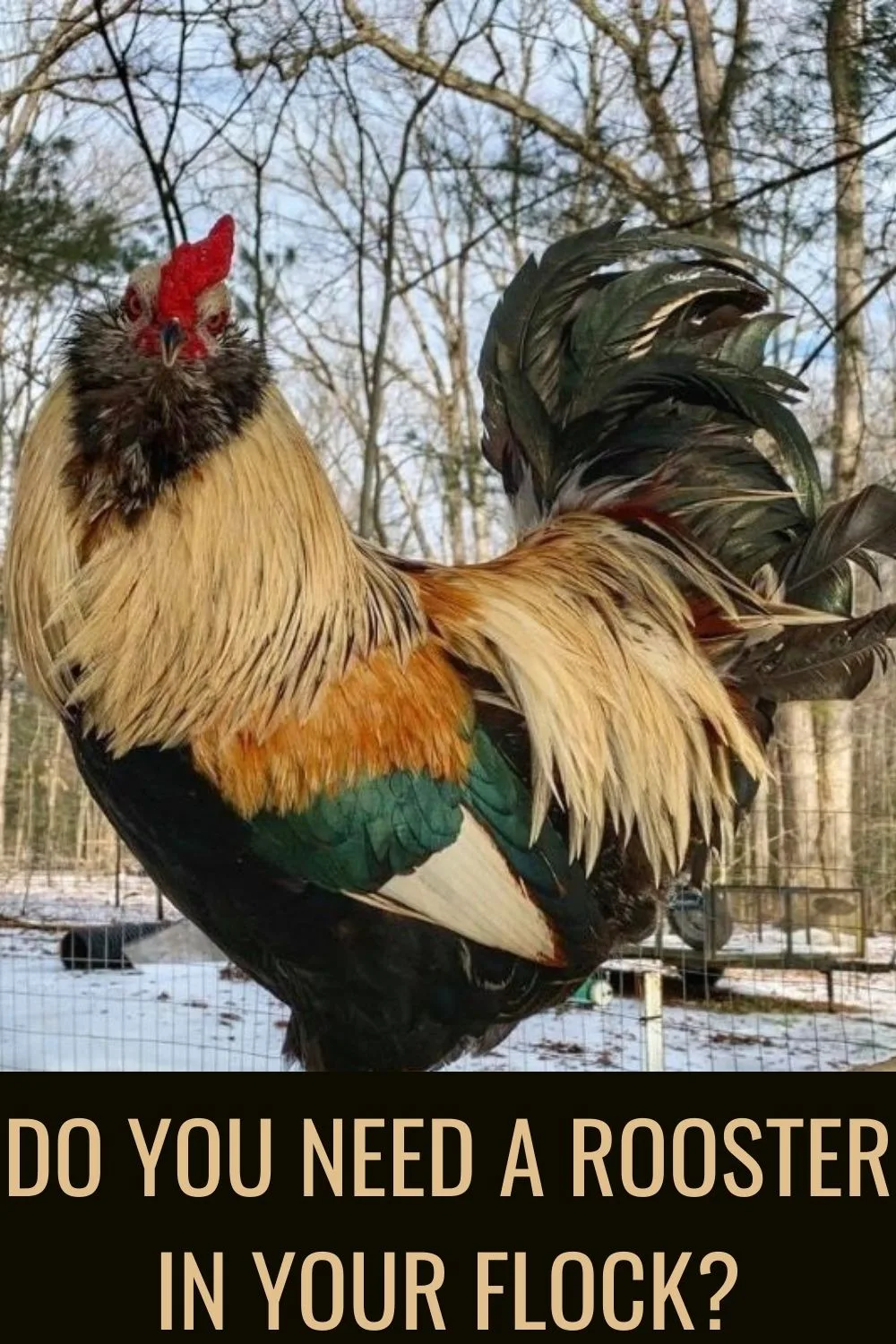Do you need a rooster in your flock? I get asked this question a lot in my Facebook group and the answer is not always black and white. There are definitely pros and cons to having a rooster in your flock. Let’s talk about them before you decide.

Do You Need A Rooster In Your Flock?
Roosters are the kings of the farmyard and the backyard. They are bigger than life, boisterous, and beautiful. They can also be annoying, angry, and aggressive. Deciding whether to have one of these extremely complicated creatures in your flock is not a decision you want to take lightly. Here are some questions you’ll want to ask yourself before you decide.
Are You Planning To Breed And Raise Your Own Chickens?
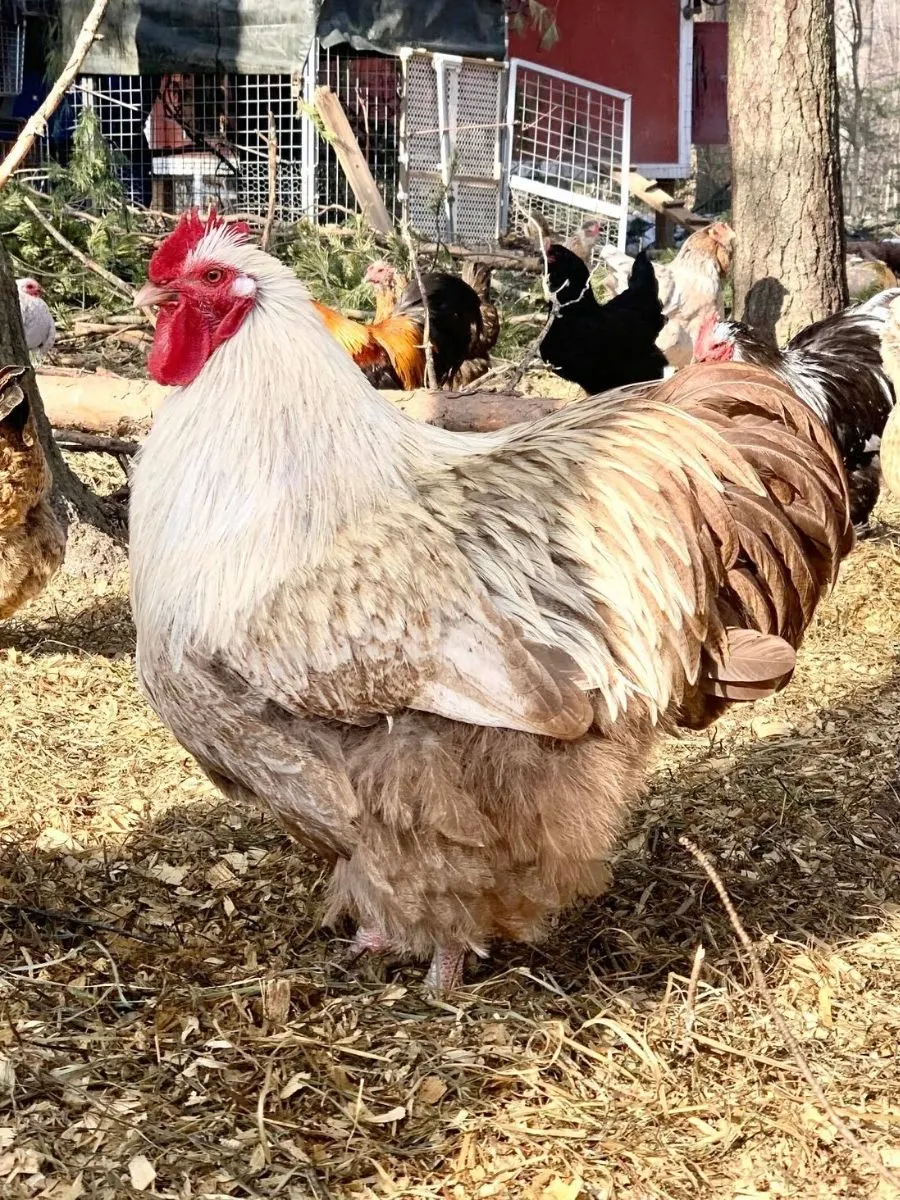
Silver birchen chocolate bantam Orpington
If you want to hatch your own eggs from your hens you will need a rooster. Makes sense, right? You wouldn’t believe how many times I’ve had to explain this to new chicken owners.
Check out the basics of raising baby chicks.
Some folks believe that because a chicken lays an egg it is automatically able to hatch into a chick. This is not the case. A chicken laying an egg is the same process as a woman ovulating. The egg comes out whether it is fertilized or not. You need a rooster to fertilize it.
I’ve also had people ask if they needed a rooster for their hens to lay eggs. The answer is no. She will lay an egg regardless. She just needs him to make it hatch.
If you plan to hatch from your own stock you will need a boy in with your hens. The rule of thumb is one rooster for every ten to twelve hens for optimum success.
Will You Be Free-Ranging Your Birds?
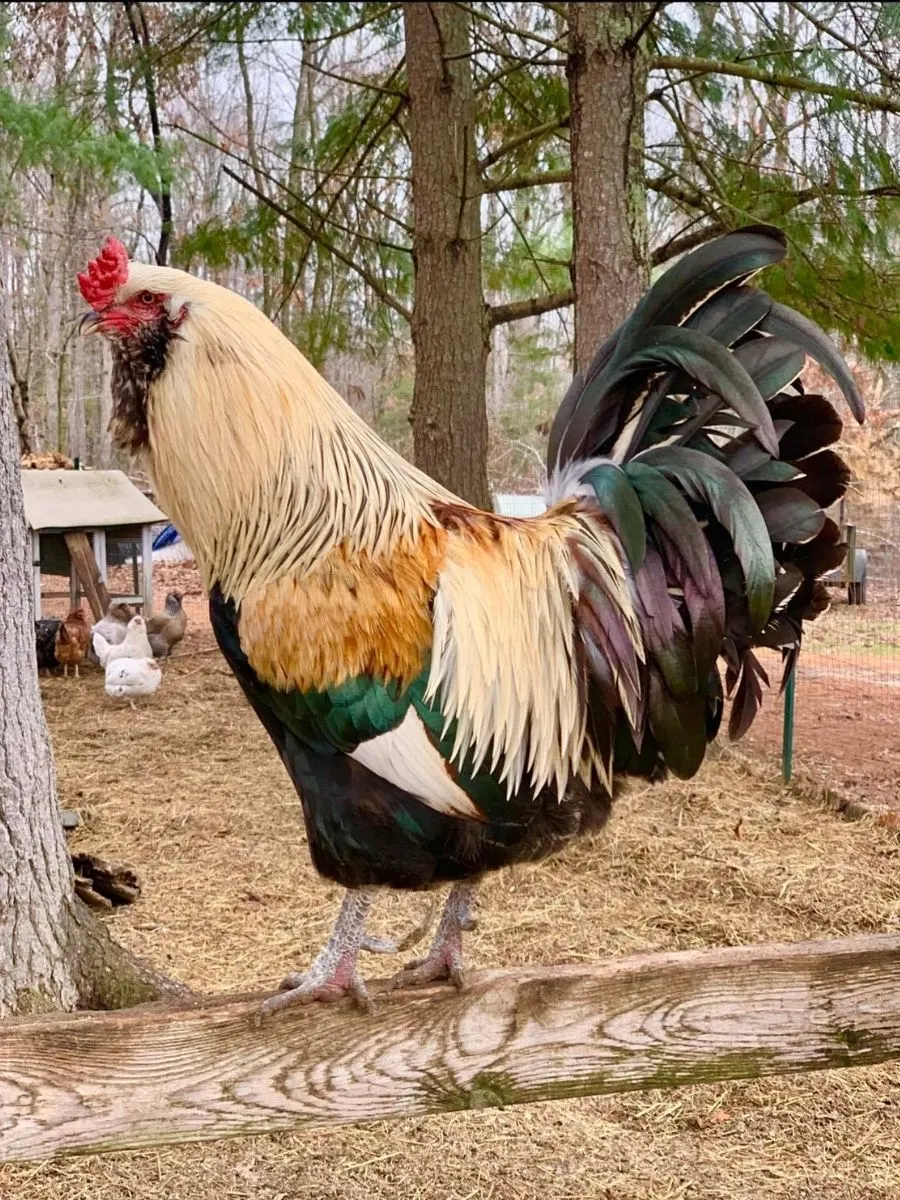
If you plan to free-range your flock, you may want to consider having a rooster as the first line of protection against predators. A good rooster will alert his hens to danger and stay behind to face whatever the threat may be.
Now, this does not mean that your brave boy will be able to successfully fight off his foe, but a good rooster will sacrifice himself for his girls. Not every rooster possesses these traits, but if you find one that does he is definitely a keeper.
A good rooster will also show his girls where the best foraging places are on your property and keep a watchful eye as they eat, soak up the sun and take dust baths.
He is in constant communication with his girls and will round up any stragglers if they stray too far. He is wary of strangers but never human aggressive. We will talk more about aggression later.
Is Color Important To You?
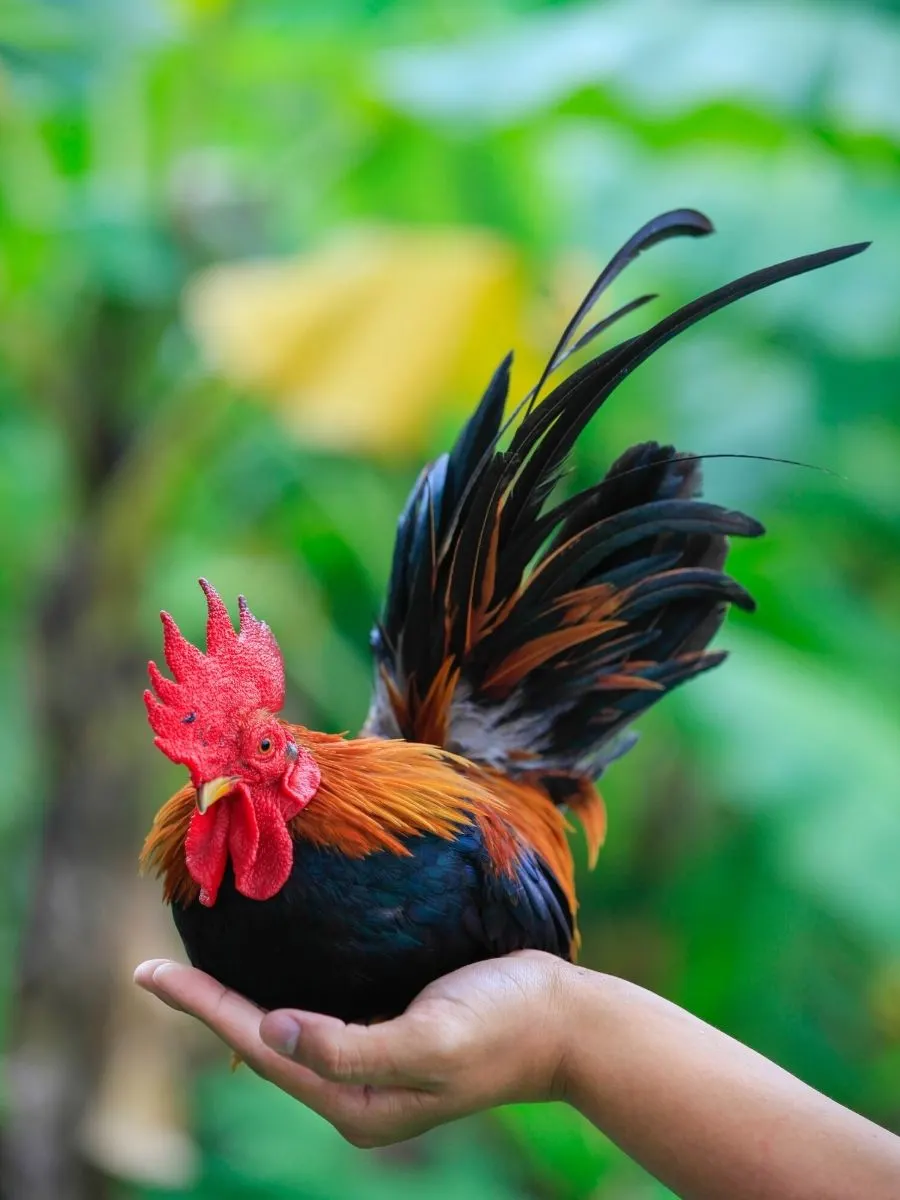
Old English bantam rooster
If you are wanting some interesting and bold colors in your flock a rooster is the way to go. In most species of birds, the males are much more colorful and ornate than the females. This is also true for chickens. Roosters have much more vibrant and colorful feathers than their female counterparts.
Where a hen’s coloring can be monochromatic, a rooster can have a multitude of colors and shades. I do a lot of hatching on my farm and I always get so attached to the cockerels because of their beautiful colors. This poses a problem because I want to keep them all. I have had to set a limit for myself with roosters. Once that limit is met all the rest have to go. Chicken math is a real thing, hahaha.
Do You Live Close To Your Neighbors?
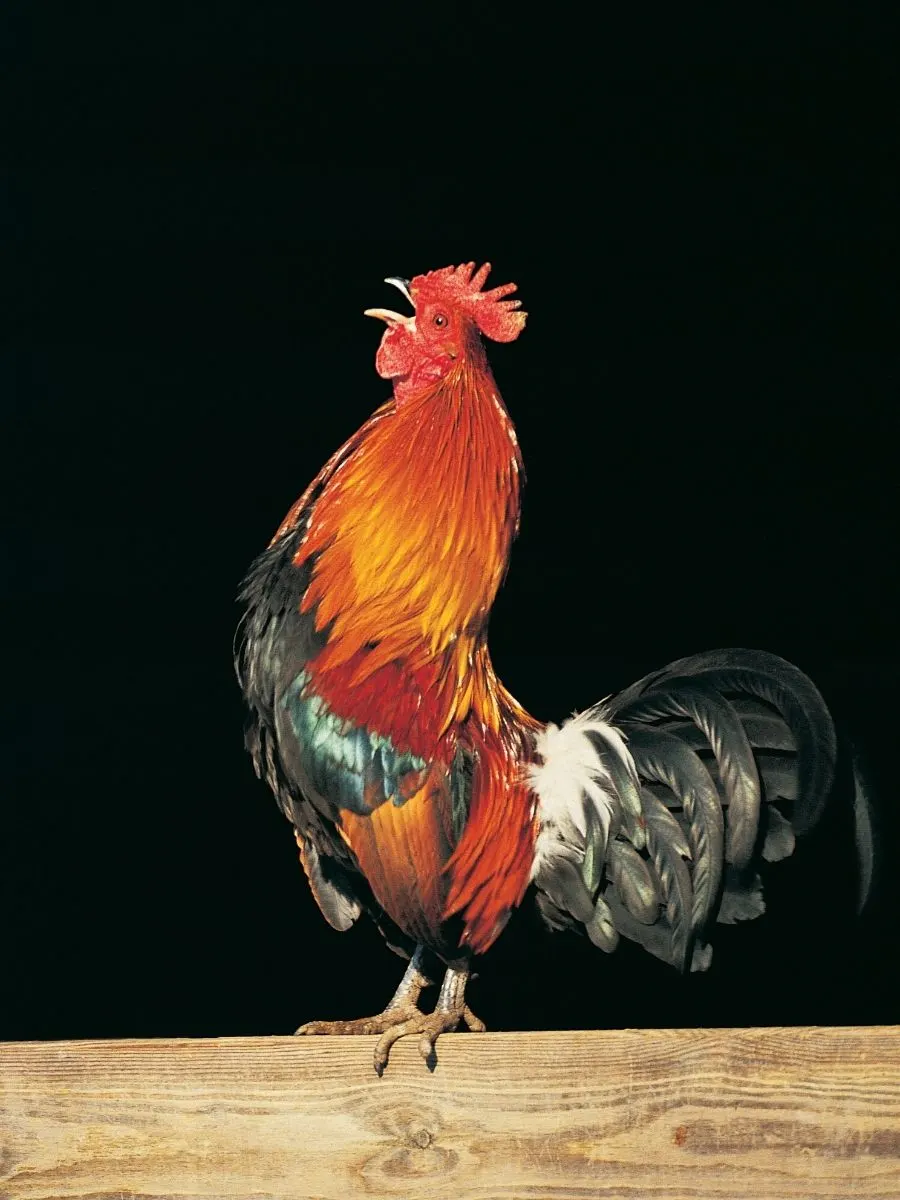
They say good fences make good neighbors, and while this holds true for keeping your chickens from wandering onto a neighboring property, it doesn’t stop the sound a rooster makes.
Most of you probably think that a rooster only crows in the morning, a natural alarm clock if you will. This is absolutely not true. Yes, roosters do crow in the morning, but they also crow in the middle of the night, around lunchtime, at two o’clock in the afternoon (this is the time of day when mine like to have contests to see which one can out crow the other), at five PM, on Sundays, when the wind blows a certain way… you get the picture.
They crow all the time. Not constantly, but throughout the day. And sometimes night. I have woken up in the dead of night and heard them out there just singing the song of their people.
While I enjoy hearing my roosters crow, if you have neighbors nearby they might not appreciate the sound. This can make for an uncomfortable environment for you and your family. Especially if they live close by.
You’ll also want to make sure you are zoned for roosters because some HOAs or county ordinances allow for hens but no roos. If your neighbor is not happy with the sounds coming from your rooster they could file a complaint and then you would have to get rid of your boy, or boys.
If you are zoned for roosters there is not much your neighbor can do about it, but there are ways you can help alleviate the situation:
- Bring them fresh eggs regularly. Sometimes when folks realize they can actually benefit from you having chickens next door their attitude towards them will change for the better. Try giving them a few blue eggs, and a few pink eggs.
- You can also try an anti-crow collar. I know folks that have used these with much success. It is basically a piece of fabric fastened with velcro that goes around the rooster’s neck. It does not restrict normal breathing however it keeps him from being able to fully puff up his neck to get the crow out. He will still make a sound, but it is not nearly as loud as a full-blown crow. This is a good option if you live in really close proximity to other folks.
Are Roosters Mean?
The short answer is, they can be. And this is something you will want to take into consideration when having a rooster on your property. I will tell you, I have raised many, many roosters on my farm and not one that I have raised has ever been human aggressive. I have had roosters that were mean to the hens and some that were mean to other roosters, but never to people.
A rooster’s main job is to protect the flock. There a those that believe that because he is the flock protector that aggression is to be tolerated. The belief is that in order for him to be good at his job he should be suspicious of anything other than his girls. I am going to tell you that this is completely not true.
There is no reason why a rooster should EVER be aggressive towards a human being. There are so many nice roosters out there it is not worth keeping a mean one. The main reason being, an aggressive rooster can be very dangerous.
At about 18 months of age, they will start to develop spurs. Spurs are long, sharp protrusions on the legs above the feet. Once a rooster fully matures his spurs will continue to grow and can become extremely long and very dangerous. When a rooster uses his spurs to attack it is called flogging. He will spread his wings, come up off the ground and push his feet forward towards his target. This is his defense mechanism against perceived threats.
Imagine if he were doing this to a small child. You can see how it could be very traumatizing and extremely dangerous. I have been flogged by a full-grown rooster once in my life and it was an experience I will never forget (he was not mine, he belonged to a friend.) I have no tolerance for an aggressive rooster.
If you notice your rooster becoming aggressive there are a few things you can do to try and stop the behavior. I personally don’t believe that any of these methods work (except #5), but there are folks who swear they have tried them with success.
- Method 1: Pick the rooster up by his legs and carry him around upside down while going about your chores. The belief is that this will embarrass him in front of his ladies and he will calm down and show more respect towards you. If you try this method it needs to be done several times for him to “get the picture”.
- Method 2: Remove him from the flock and put him in a solitary confinement situation, such as a large dog cage or an unused coop. Keep him there for about two weeks and then reintroduce him to the flock. Interact with him while he is confined by bringing him treats and attempt to socialize him more with humans. This is supposed to change his perspective of you by associating you with positive interactions. Once you return him to his flock he is supposed to have a different outlook on humans and not be aggressive.
- Method 3: Carry a stick with you whenever outside to ward off any attacks. I do not recommend this as showing aggression towards a rooster is not the best way to stop him from attacking. Animals do not think as humans do. He will continue to attack every time you strike him. Your actions will only exacerbate his bad behavior. And I don’t know about you, but I sure as heck don’t want to have to carry a stick around with me every time I’m outside for fear of being attacked.
- Method 4: Rehome him. Please, PLeaSe, PLEASE do not do this. If you have a mean rooster he is not going to suddenly become nice because he goes to a different place. Don’t make your problem someone else’s potentially dangerous problem.
- Method 5: Make soup. Roosters are great for the stew pot and taste delicious. If you don’t want to or don’t know how to do it yourself, find a friend who does. In my opinion, this is the best way of dealing with an aggressive rooster.
How Many Roosters Should I Have?
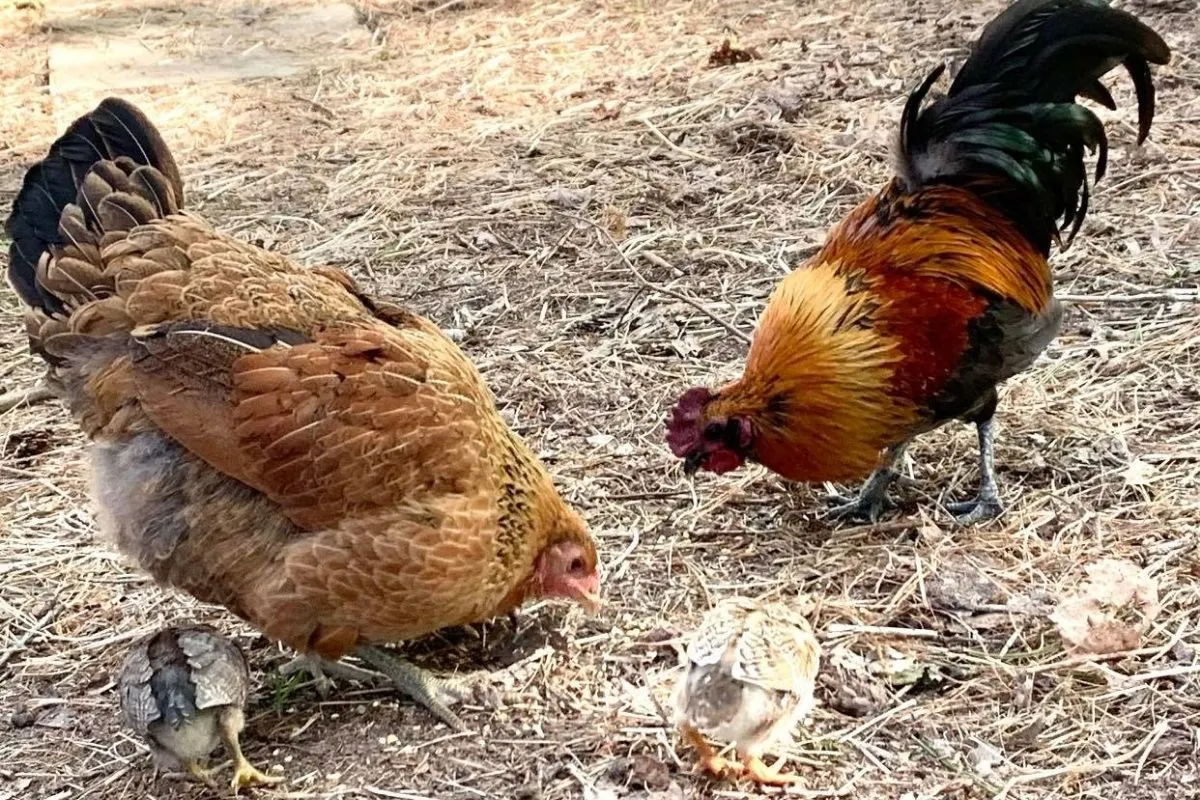
This will depend on the number of hens in your flock and how much space they have to roam. If you have six hens in a confined setting, say an eight-by-ten run with a small coop, one rooster will be completely sufficient. If you have a large pasture with a hundred hens you can feasibly have multiple roosters in your flock.
Space is very important with regards to keeping roosters. If they are too confined they tend to squabble and fight more than if they have ample room to establish territories with their favorite hens. The more space they have to separate themselves from one another, the more harmonious they will be.
I also find that my older roosters act as a kind of mentor to the younger cockerels. They show them how to interact with the hens and put them in their place if they get too rough or out of line. Raising up my young boys with my established boys has been very successful for me.
If you are breeding specific breeds of birds and have several breeding pens you will obviously need a rooster in each pen to breed with your girls.
I know of folks who have bachelor pads for their roosters. This is a pen containing roosters only. No hens. Roosters seem to coexist fairly well when there are no hens being housed with them. A lot of times having a bachelor pad is desirable if you do not want to get rid of your extra roosters, or if you may be planning to use them for a breeding program at a later date. Sometimes bachelor pads are established for the off-season when you are not breeding your hens and you want to give them a break.
There are also folks who like to keep a bunch of roosters around for bug control. They let them free range during the day to consume bugs and only put them up at night.
Just remember that too many roosters in a small setting can be disastrous. They need to have enough room and enough of their own ladies to comfortably coexist with other roosters.
Frequently Asked Questions
Can I keep a rooster by himself?
Yes, you can, but keep in mind that chickens are social creatures and do enjoy the company of other chickens. So while you can keep a rooster by himself, he would be much happier with other chickens.
What are the different types of roosters?
There are many, many different breeds of roosters out there. The main two types would be large fowl and bantam. Bantams are usually a miniature version of a large fowl chicken. Not all breeds come in a bantam version and there are some bantams that are true bantams and have no large fowl counterparts. The Serama and the Silkie are two great examples of breeds that only come in bantam size. They are true bantams.
Do hens lay more eggs with a rooster?
Hens lay eggs whether you have a rooster or not. They will not lay more because there is a rooster in your flock. The only reason you would need the rooster is to fertilize the eggs if you wish to hatch them.
How many hens can you have without a rooster?
As many as you want. You do not need to have a rooster in your flock unless you want fertilized eggs for hatching.
What are the differences between a hen and a rooster?
- Roosters typically have brighter, showier colors than a hen.
- They have hackle and saddle feathers that extend longer than a hen’s and are pointy in shape whereas a hen’s are rounded.
- Their combs and wattles are usually bigger than females of the same breed.
- They also have spurs which the majority of hens do not. I say majority because there are cases where a hen may develop spurs later in her life. I have had this happen with two of my hens in the past.
- Roosters crow, hens do not. Although I have heard some folks say that when you do not have a rooster in your flock, one of the hens may take on the characteristics of a rooster and even begin to crow.
Are there any reasons why you shouldn’t have a rooster?
The main reason would be if you live in an area that does not allow it. If it is illegal where you live, you want to seriously think about not having one. All it takes is one complaint to the county or your HOA and you will have to rehome him quickly.
And it can be very difficult to find a home for a rooster. Mostly because most people who want them already have them and you only need so many in your flock.
Another reason to not have a rooster is if you don’t like the noise they make. They do tend to crow throughout the day and sometimes at night. It can be annoying if you prefer a quiet environment.
Wrapping it up
So, if you have chickens do you need a rooster? The answer depends on your personal situation. If you’re planning to breed your own chickens? Let your birds free-range? Then yes, you’ll need a rooster with your flock. But you don’t need a rooster to get eggs, and if you live in certain neighborhoods, you aren’t allowed to have a rooster. I hope this guide answered your questions about keeping a rooster (or more) for your hens.
